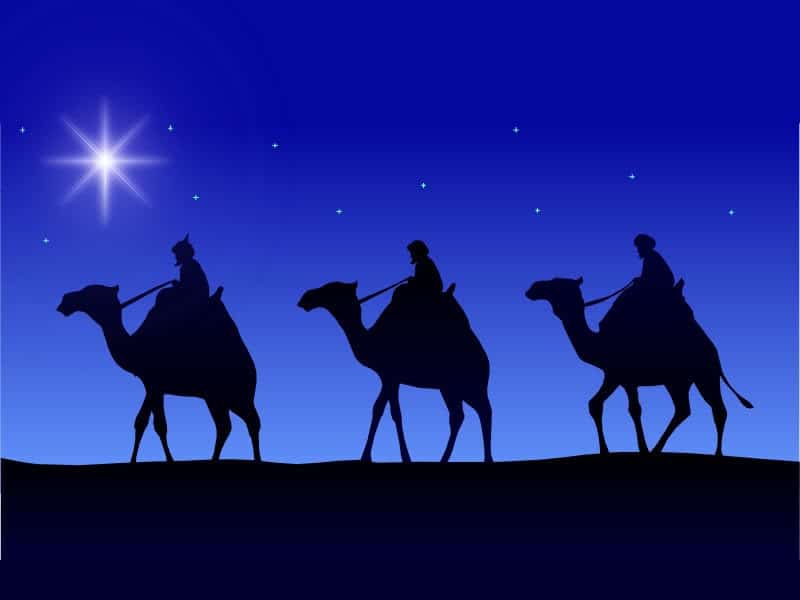Today is the end of the Christmas season. God himself is celebrating what is taking place in the Gospel: the Baptism of his Son in the river Jordan at the hands of St. John the Baptist.
In the First Reading, God speaks of Jesus as his servant who is about to begin something wonderful: his public life. He’s going to bring justice to the world, be a light for the nations, open the eyes of the blind, and free prisoners. God is keeping his promise through Jesus’ mission on earth: God is sending out the Savior today to get to work. During Christmas we celebrated the birth of the Savior. On today’s feast, the Baptism of the Lord, we’re celebrating him finishing his silent years in Nazareth and going out to preach salvation to the world.
In the Second Reading St. Peter rejoices that salvation is not just for the people of Israel, but for everyone who respects God and acts uprightly. When Jesus is baptized in the Jordan, he institutes a new kind of baptism. John talks about that baptism in the Gospel today as different from his: it is a baptism of the Holy Spirit. St. Peter in the Second Reading is speaking to Cornelius, who was the first non-Jew to be baptized in the history of the Church. The Jews thought originally that the Savior would only come for the Jews. But then the Holy Spirit revealed to Peter and the Church through Cornelius’ situation that the Savior was coming for everyone who feared God (respected God) and acted uprightly (acted in a good way).
The Holy Spirit always works little by little. Cornelius had heard about Jesus and his promise of salvation, and had been praying for a sign. Peter was praying too, and they didn’t know each other at all. Then an angel came to Cornelius and told him to send men to find and bring Peter. Cornelius was a Roman centurion, and since he wasn’t a Jew, Peter wouldn’t have visited him unless the Holy Spirit had said it was okay in a dream, since the Jews didn’t enter the houses of non-Jews. As Peter rejoices that the Savior has come for everyone, he recalls Jesus’ baptism in the Jordan as the beginning of doing good and healing all those who were oppressed by the devil.
So we celebrate today with God, with Peter, with Cornelius, and with everyone who has become Christian since. We celebrate that Jesus began to go out and do good, heal the sick, give sight to the blind, and free those who are imprisoned by sin.
So as we begin a new year, and the Christmas season draws to an end, Jesus’ private and public life show us it is time for us to get to work as well. In the Christmas season we’ve spent more time at home, resting, being with family and friends, receiving so many gifts, and getting ready to live the New Year better. It’s not a time for gloom and doom as we return to work, to school, to the daily grind: it’s time to show Our Lord we appreciate all He’s given us over the last year, and all He’s given us during the Christmas season. It’s time for us to get to work and get the word out about salvation. Cornelius heard about salvation from someone, long before he met St. Peter, and there are lots of Cornelius’ out there who are looking for what our faith has to offer. They are hungry for God.
Let’s thank Our Lord for the Christmas Season and the New Year that has just begun. Let’s keep moving forward on those New Year’s resolutions as a way to show gratitude to Our Lord for all the blessings He has poured out on us. Let’s pray for those who are suffering from hunger and war, so that they too can be blessed. Let’s pray for all those Cornelius’ out there to find and love God, to do good, and to find salvation.
Readings: Isaiah 42:1–4, 6–7; Acts 10:34-38; Mark 1:7–11.


